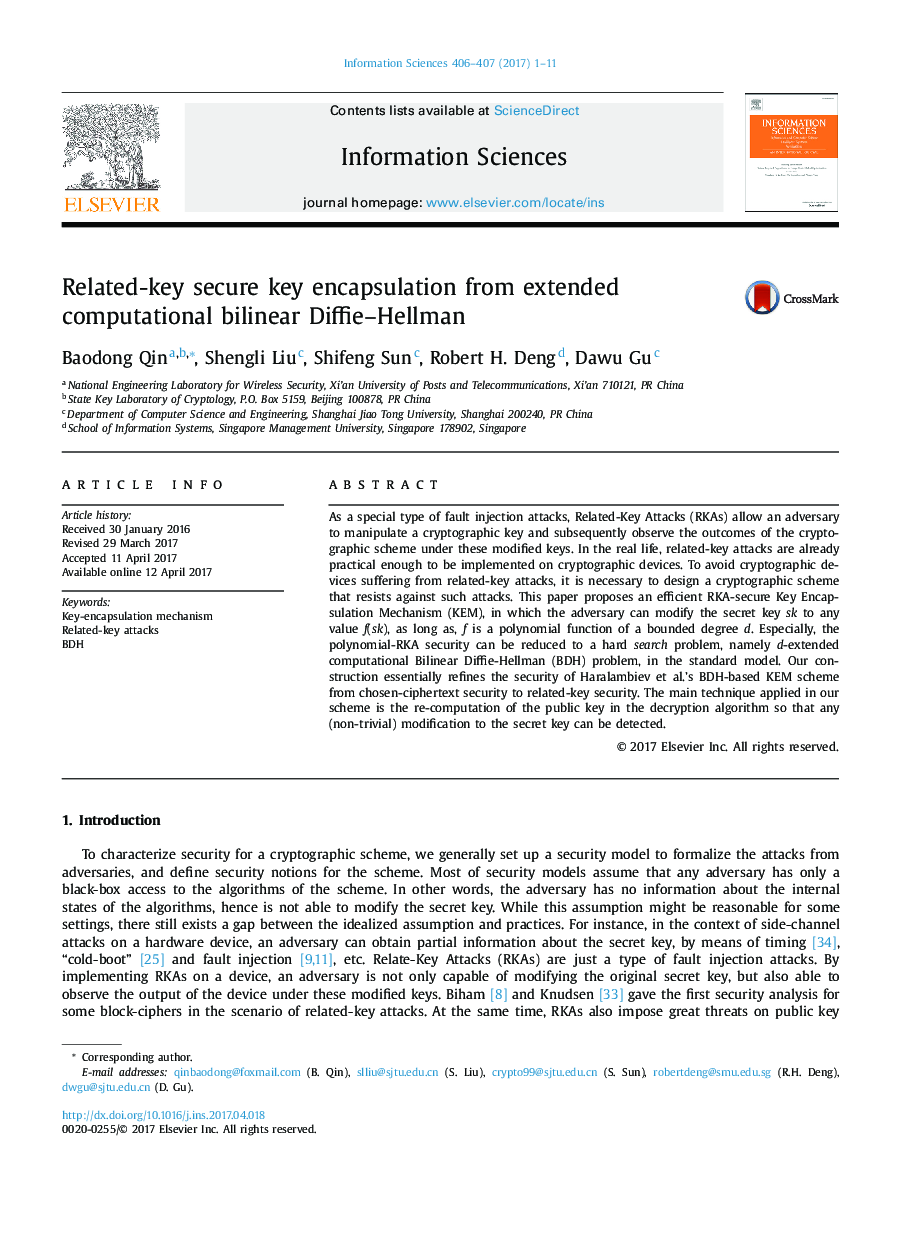| Article ID | Journal | Published Year | Pages | File Type |
|---|---|---|---|---|
| 4944429 | Information Sciences | 2017 | 11 Pages |
Abstract
As a special type of fault injection attacks, Related-Key Attacks (RKAs) allow an adversary to manipulate a cryptographic key and subsequently observe the outcomes of the cryptographic scheme under these modified keys. In the real life, related-key attacks are already practical enough to be implemented on cryptographic devices. To avoid cryptographic devices suffering from related-key attacks, it is necessary to design a cryptographic scheme that resists against such attacks. This paper proposes an efficient RKA-secure Key Encapsulation Mechanism (KEM), in which the adversary can modify the secret key sk to any value f(sk), as long as, f is a polynomial function of a bounded degree d. Especially, the polynomial-RKA security can be reduced to a hard search problem, namely d-extended computational Bilinear Diffie-Hellman (BDH) problem, in the standard model. Our construction essentially refines the security of Haralambiev et al.'s BDH-based KEM scheme from chosen-ciphertext security to related-key security. The main technique applied in our scheme is the re-computation of the public key in the decryption algorithm so that any (non-trivial) modification to the secret key can be detected.
Keywords
Related Topics
Physical Sciences and Engineering
Computer Science
Artificial Intelligence
Authors
Baodong Qin, Shengli Liu, Shifeng Sun, Robert H. Deng, Dawu Gu,
